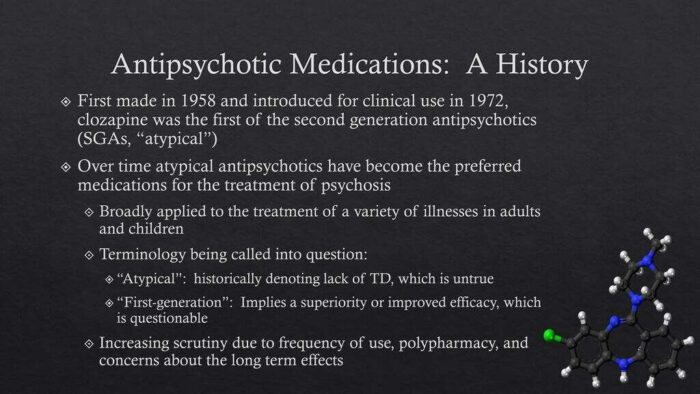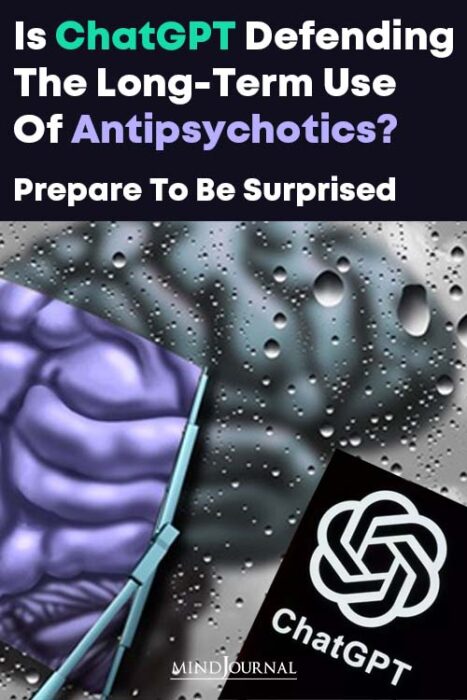The long term use of antipsychotics in the treatment of patients with schizophrenia has been a subject of debate and scrutiny.
While concerns have been raised regarding the potential adverse effects and efficacy of prolonged antipsychotic use, we tried to explore the perspective of ChatGPT, an advanced AI language model.
Did ChatGPT defend the use of antipsychotics, or Does it have more to offer? Read along as we delve into the benefits and challenges associated with long term use of antipsychotics, while also considering the insights provided by ChatGPT regarding the role of these medications in managing schizophrenia.
Read more here: Rob McElhenney Diagnosed With Neurodevelopmental Disorders: Shedding Light On Symptoms And Coping Strategies
Understanding The Efficacy And Benefits Of Long term Use Of Antipsychotics
The primary goal of long-term antipsychotic treatment is to alleviate symptoms, enhance patients’ quality of life, and reduce the risk of relapse among individuals with schizophrenia.
Studies have shown that antipsychotic medications play a crucial role in managing the core symptoms of the condition, including hallucinations, delusions, and disorganized thinking.

By targeting specific neurotransmitters in the brain, these medications help stabilize patients’ mental states and improve their overall functioning.
Moreover, the long-term effects of psychiatric drugs have demonstrated a positive impact on preventing future psychotic episodes and hospitalizations.
ChatGPT emphasizes that antipsychotic medications can significantly improve the well-being of individuals with schizophrenia when used judiciously.
By reducing symptom severity, these drugs enable patients to better engage in therapy, social interactions, and everyday activities.
Long-term treatment has also been linked to improved cognitive functioning, aiding in restoring patients’ cognitive abilities and enhancing their overall cognitive performance.
Read more here: News Study Finds Sleep Deprivation Helps Depression Relief
Recognizing Challenges And Long-term Effects Of Psychiatric Drugs
While antipsychotic medications have proven efficacy, it is essential to acknowledge the potential challenges and long-term effects associated with their use.
Concerns have been raised about the side effects of these medications, which can range from mild to severe. Common side effects include weight gain, metabolic abnormalities, sedation, and movement disorders.
However, not all patients experience these adverse effects, and the severity varies from person to person.
ChatGPT acknowledges the existence of these side effects but highlights the significance of individualized treatment plans.
By closely monitoring patients’ responses and adjusting medication dosage as needed, healthcare professionals can mitigate the impact of side effects and promote medication adherence.
Additionally, advancements in antipsychotic medications have led to the development of newer generations with a reduced risk of certain side effects, further improving the long-term treatment experience for patients.
Read more here: AI Chatbot Tessa Removed From US Eating Disorder Helpline For Providing Harmful Advice
What ChatGPT Has To Say On The Role Of Antipsychotics In Schizophrenia Management?
ChatGPT defend the use of antipsychotics as an integral part of comprehensive treatment plans for patients with schizophrenia.
The AI model emphasizes that while these medications are not a cure, they can effectively manage symptoms and enhance individuals’ overall functioning and quality of life.
ChatGPT also stresses the importance of a collaborative approach involving healthcare professionals and patients in making informed decisions about long-term antipsychotic use.
ChatGPT suggests that continuous monitoring and periodic reassessment of treatment strategies are crucial to ensuring the optimal benefits of antipsychotic therapy while minimizing potential risks.
It highlights the need for open communication and regular evaluation of treatment goals, taking into account the individual needs and preferences of patients.
The long term use of antipsychotics remains a complex and multifaceted topic. While concerns about potential side effects persist, evidence supports the efficacy of antipsychotics in managing symptoms, preventing relapse, and improving the overall well-being of patients with schizophrenia.
ChatGPT’s insights provide valuable perspectives on the role of these medications within a comprehensive treatment approach.
It is crucial for healthcare professionals to carefully consider individual patient factors and engage in shared decision-making to optimize the benefits and minimize the challenges associated with long-term antipsychotic use.









Leave a Reply
You must be logged in to post a comment.